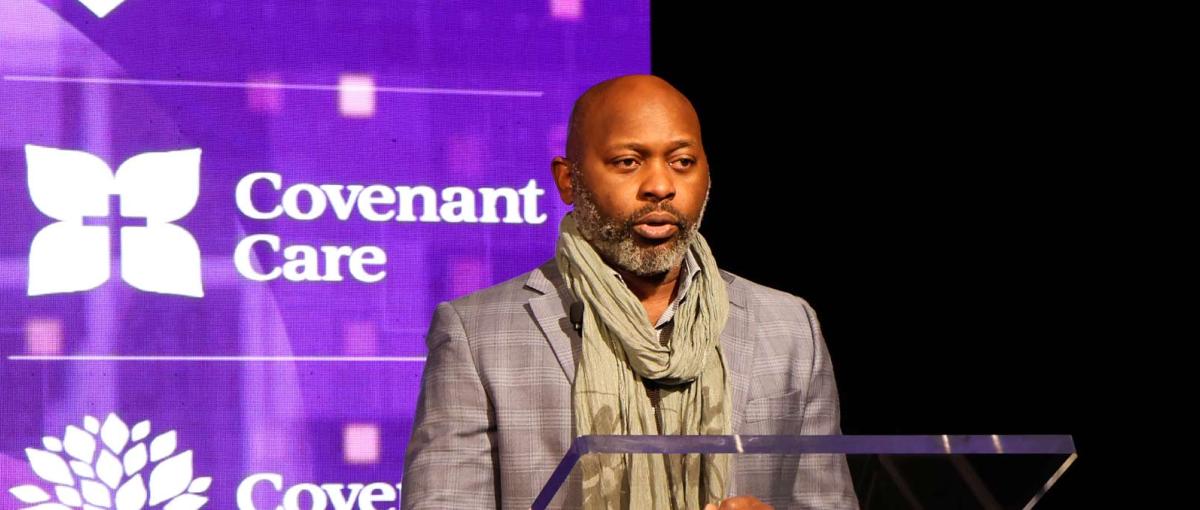Meet Emile Enongene, site administrator, St. Teresa Place, Covenant Care

February 8, 2024
By Gwendoline Hunka, communications advisor
Editor’s note: Emile’s story is part of a series of staff profiles we are publishing for Black History Month. Read more stories from Chris, Allison and Ashlee.
Although his middle name, Nzume, means “troublemaker” in the Bakossi language, Emile Enongene, site administrator at St. Teresa Place, a Covenant Care centre in Calgary, believes in advocating for others.
“Being from Southern Cameroon, where we have not really experienced independence, I was lucky enough to have parents who were politically open with us as children, and the way (my family and I) interact shows that,” says Emile. “Now, when I see situations of injustice, I must speak up. Speaking up for the weak is important, as is giving a voice to those around me.”
Emile’s advocacy is informed by history. With both of his parents and his eldest sister being teachers, history and education were important to him growing up. And coming from a place that was colonized by multiple countries, he recognizes the importance of using Black History Month as a time to remember the past — as well as things that are still happening now — and acknowledging the good and the bad.
“While we can focus on and celebrate what people have done, we cannot stop now and pay lip service towards Black History Month without taking a closer look at what is happening today,” he says. “We need to be intentional about how we look at society and our values.”
As a leader, Emile values intentionality, especially when it comes to changing perspectives and attitudes. Building consensus about change in the workplace can be challenging, but he believes it is possible when leaders know how to navigate conflict, create space for people to bring their authentic selves and give people room to speak.
“Our life is based on our experiences and what we carry with us. If we are intent on growing, we must change with time. Those who make the best decisions in life constantly change their minds.”
Emile also recognizes the need for more representation and lived experience within the healthcare system, whether it’s in hospitals or community health centres, to better reflect the multicultural society we live in.
“Racially sensitive health care needs a racially diverse workforce because it makes people more aware of others’ (and their own) experiences of discrimination and acceptance. We have a unique opportunity to embrace and create a diverse workforce by bringing in other cultures and races.”